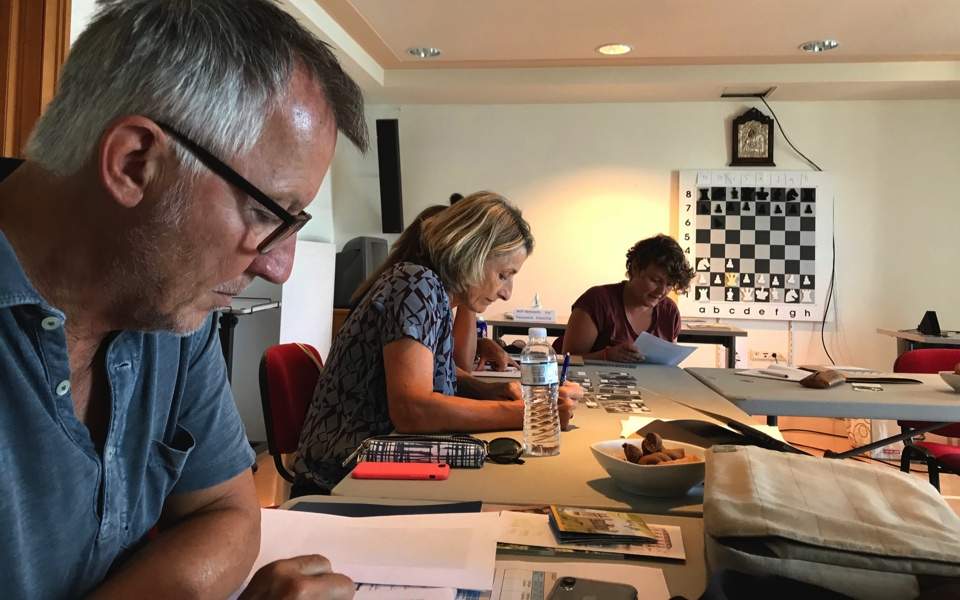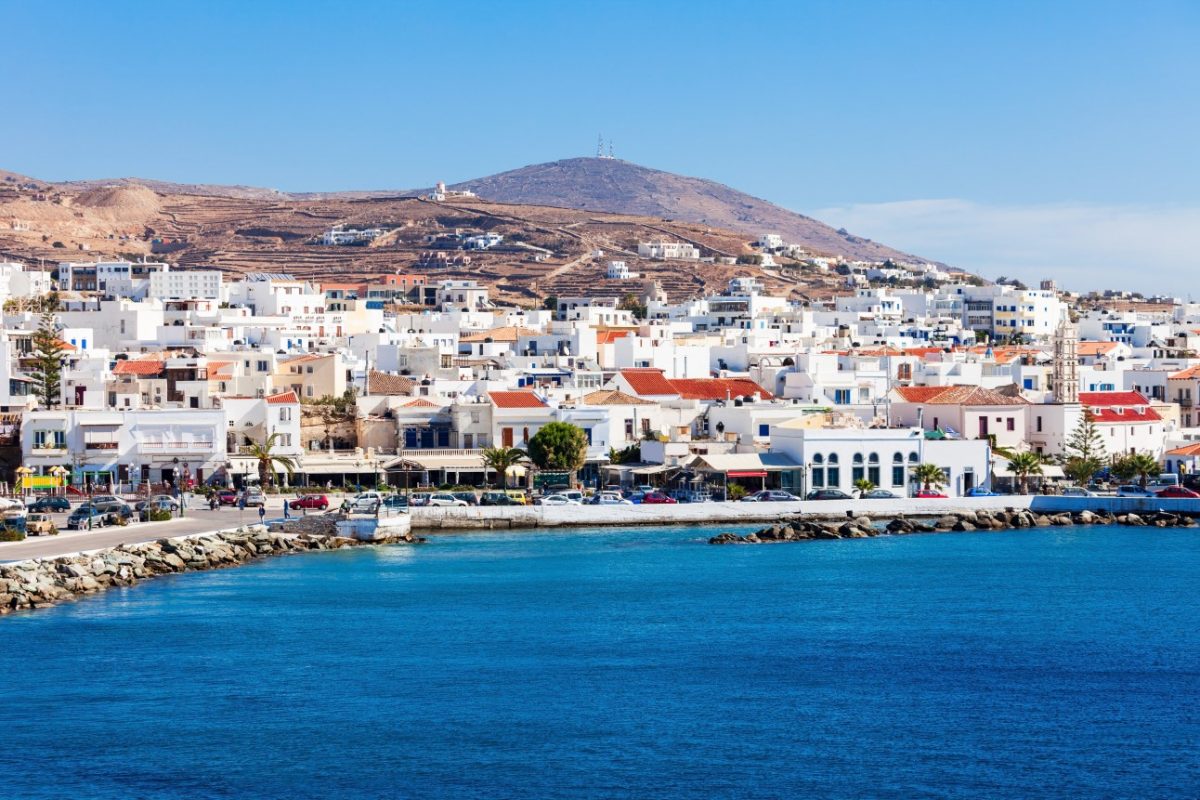“When I heard Greek music for the first time, as a child, I felt like the sun had suddenly burst onto the overcast sky of my country. I did know anything about Greece. Later, in my 20s and very much in love, I went on holiday to Paros and have been coming to Greece every year ever since,” says Monica. The 65-year-old was among a group of other Swiss nationals who took part over the summer in a Greek language and culture seminar on the island of Tinos, organized by the Hellenic Culture School in Zurich.
The students – ranging in age from 35 to 80 – who responded to the invitation of the school’s founder and teacher, Maria Skiada, all feel a strong attachment to the country that compelled them to take on the challenge of learning Greek, even though it has nothing in common with Switzerland’s three official languages. They have friends and even relatives in Greece, they have bought or inherited property here and travel here every year.
“I like the language’s melodiousness and the people’s character, and I would like to understand what the Greek men and women are saying,” says Franz.
“It is also a very good exercise for the mind,” adds the 79-year-old, echoing the sentiments of other fellow students, who agree that they find the challenge of learning the Greek language mentally stimulating.
The four-day seminar on the Greek island was not restricted to classes on vocabulary, grammar and syntax, however. Lessons took up four hours of every morning and were then followed by tours, visits and long walks or hikes, during which the students would connect with locals about on their day-to-day business.
“After 14 years of living in Switzerland and mainly teaching Greek to foreigners, I realized that what people learning a language far away really miss is the natural linguistic environment,” Dr Skiada told Kathimerini recently. “For example, they ask for original and literary texts to read, not texts that have been adapted to the needs of teaching.”
Organizing educational summer seminars in Greece was also part of this realization. “It took place in Athens the first two years but this year I preferred to go to Tinos. We made an effort to avoid the crowds in Hora and to focus on activities in other parts of the island,” she explained in reference to concerns about their maintaining physical distancing and other health safety precautions.

This year’s seminar was attended by 10 students, eight of whom are at an advanced level, so most were interested in practicing their Greek in real conversations. To this end, Skiada arranged interviews with locals, mostly people practicing traditional crafts: a baker, a marble sculptor and a ship captain, among others. “The students had to conduct the interviews on their own, in Greek, and then present what they’d learned,” said Skiada, adding that she was impressed at their enthusiasm, with a few of the students even having prepared PowerPoint presentations.
“I always address them in Greek, but I speak slowly and use familiar words, so a conversation with a local, who may even employ idiomatic phrases, was diving in at the deep end,” she added.
Marion spoke with a marble sculptor called Onoufrios at his workshop in Ysternia. “He told me about the different stages of his work, but also about life on the island,” she said, adding that she was also fascinated by the presentation given by the head of the Cultural Foundation of Tinos, Markos Vidalis, on the island’s famous sculptors and traditions.
Marion has traveled around Greece extensively and has been to Tinos before, but she was excited to discover the joys of its more remote villages.
“They were an excellent audience, who not only understood the Greek language, but also knew a lot about Greek culture,” said architect Maria Vidali, who delivered a lecture to the class on Tinian customs related to weddings and funerals.
“The village communities have always been very engaged, as evidenced by their active participation when a resident dies and in the family’s grief,” she told Kathimerini, explaining that some of the details of these customs made an impression on the visitors from Switzerland, where attitudes tend to be more reserved.
“Someone who does not know our customs may think that all the lights being on in a house means the residents are celebrating something joyful, when in fact it is the house of someone who has died, where friends, family and fellow villagers stand vigil all night so that he or she is never left alone,” explained Vidali.
This article was first published on ekathimerini.com










